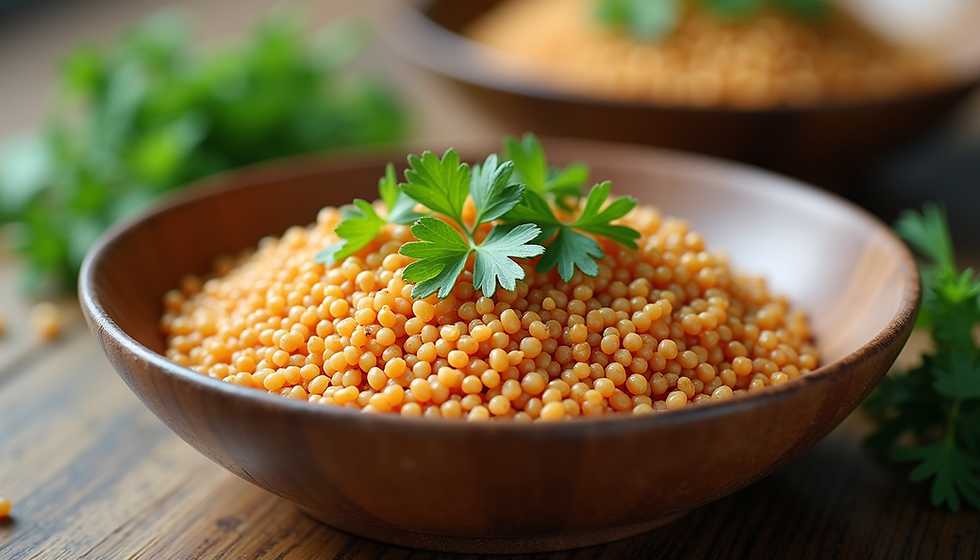The Timeless Healing Power of St John's Wort and Mint in Traditional Medicine
- Kristina TOSEVSKA

- Oct 25, 2025
- 3 min read
The rise of the pharmaceutical industry has significantly changed how we view health and wellness, making medications more accessible than ever. Yet, many individuals still turn to traditional medicinal methods, especially the use of healing plants. This age-old connection to nature often gets passed down from grandparents to grandchildren, with cherished recipes shared to alleviate everyday ailments. Folk medicine, practiced for thousands of years, continues to serve as a foundation for modern medical practices, drawing wisdom from ancient civilizations that relied on herbs alongside cultural rituals.
The Legacy of Folk Medicine
Folk medicine illustrates humanity's deep bond with nature. Before the development of pharmaceuticals, those seeking healing looked to the earth. They carefully noted how various plants affected health and began to compile a wealth of knowledge. For example, in communities around the world, remedies using echinacea for colds or ginger for nausea highlight the profound understanding of plants that has been passed down through generations. This timeless wisdom remains relevant, influencing modern holistic health practices with its simple yet effective approaches.
St. John's Wort: A Herbal Marvel
One of the most respected plants in traditional medicine is St. John's Wort. Utilized since ancient Greece, this herb is known today for its multitude of healing properties and its role in various branches of medicine.

St. John's Wort is famed for its ability to treat digestive disorders. For instance, many use it to soothe stomach ulcers or help regulate indigestion. Research has shown that it can improve gastrointestinal health, reducing symptoms in about 70% of users suffering from mild to moderate digestive issues. Beyond physical ailments, studies have also highlighted its benefits for mental health, with numerous clinical trials indicating a significant reduction in depression symptoms among participants, with efficacy rates similar to some modern antidepressants.
The Healing Balm of St. John's Wort
One of the most common preparations made from St. John's Wort is a soothing balm. It has gained popularity for its impressive wound-healing properties. The process involves infusing olive oil with the stems of St. John's Wort over weeks, allowing essential nutrients to steep into the oil. This balm can be applied to cuts, burns, and skin irritations, speeding up healing and reducing inflammation.
Using St. John's Wort balm exemplifies how traditional medicine draws on the potency of nature. It showcases the belief that understanding and using natural resources is essential for effective healing.
Mint: A Refreshing Remedy
Mint is another enduring plant in traditional medicine. Praised for its fresh aroma and taste, mint has been valued for centuries for its healing aspects. It serves not only as a culinary staple but also as a powerful ally in enhancing health.
Mint is frequently used to ease digestive discomfort, such as indigestion and bloating. Scientific evidence suggests that around 80% of people with gastrointestinal issues experience relief after using mint, thanks to its ability to relax intestinal muscles. Additionally, mint is known to alleviate headaches and ease respiratory issues due to its cooling effect, making it a versatile herb in many households.
The Versatility of Mint
Beyond its digestive benefits, mint possesses antimicrobial properties that make it useful in various forms, including teas, essential oils, and topical applications. The refreshing scent can even uplift mood, making mint a popular choice for aromatherapy.
Incorporating mint into daily life is easy, whether through brewing a comforting cup of mint tea or adding fresh leaves to salads and dishes. Its accessibility not only enhances flavor but also promotes wellness.
Bridging the Gap Between Tradition and Modernity
The ongoing use of plants like St. John's Wort and mint in traditional medicine underscores the importance of blending natural remedies with modern healthcare. While contemporary medicine offers incredible advancements, folk medicine provides valuable insights into a more holistic approach that promotes prevention and overall well-being.
As we navigate the complexities of health, we must recognize the value of both traditional knowledge and contemporary practices. By embracing the healing abilities of natural remedies, we can foster a more balanced and comprehensive approach to our health.
Embracing Nature's Remedies
The evolution of the pharmaceutical industry has undoubtedly broadened access to medical solutions, yet traditional medicine retains its significance in today's world. Plants like St. John's Wort and mint exemplify how nature can provide remedies that have stood the test of time.
As we explore herbal medicine's benefits, let's honor the wisdom of our forebears and the natural world around us. By integrating these timeless practices into our modern routines, we can enrich our health and cultivate a deeper connection with the earth.
In a fast-paced lifestyle that often distracts us from nature's simple gifts, it's refreshing to appreciate the healing power of plants. Whether it's a calming cup of mint tea or applying St. John's Wort balm, the remedies provided by nature are always there, ready to support us on our journey to better health.



Comments